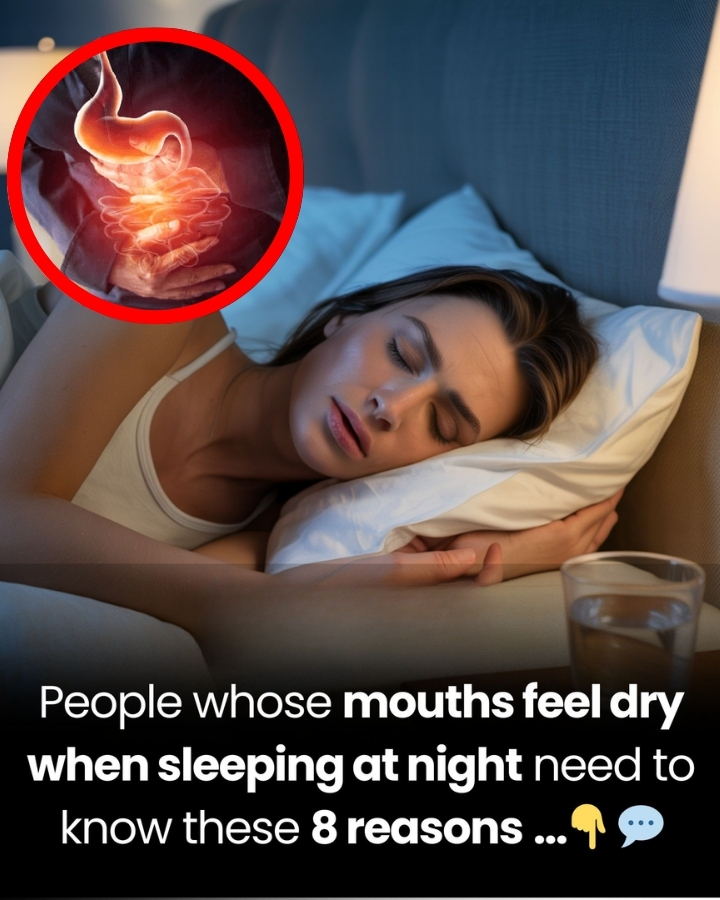Conditions such as gingivitis, periodontitis, or general poor oral hygiene can increase the presence of harmful bacteria in the mouth. These bacteria can multiply overnight, leading to inflammation and dryness.
Regular brushing, flossing, and dental checkups are essential in preventing oral infections that may cause dry mouth.
5. Diabetes
People with diabetes often experience dry mouth, especially at night. High blood sugar levels cause the kidneys to work harder to eliminate excess sugar through urine, which leads to fluid loss and dehydration.

As a result, the mouth may feel unusually dry while sleeping.
6. Bile Reflux
When bile flows back into the stomach due to poor liver function, it can cause indigestion and disrupt sleep.
Bile reflux may lead to a dry mouth during the night and other digestive discomforts. Managing liver health is important in addressing this condition.
7. Fever
When you have a fever, your body temperature rises, and you naturally lose more fluids. This often causes dry mouth and a burning sensation.
Drinking water and reducing fever with medication or rest can help relieve these symptoms.
8. Hyperthyroidism
An overactive thyroid speeds up the body’s metabolism, increasing the need for fluids and overstimulating the nervous system.
This can result in excessive dryness in the mouth during the night.

If you regularly experience dry mouth at night, consider evaluating your diet, hydration habits, and oral hygiene. If the issue persists, it’s best to consult a doctor to rule out any serious medical conditions.
